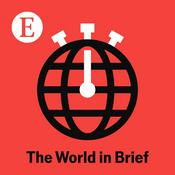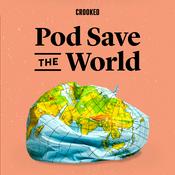574 episódios
- In February 2026, the last remaining nuclear arms control treaty bilateral between Russia and the United States is set to expire. The aim of the New START agreement was to reduce and limit the number of strategic nuclear warheads, but once this treaty comes to an end it means there will no longer be rules on the cap of these nuclear weapons. The legal provisions in the treaty for a one-time five-year extension, were used in 2021.
The multilateral Nuclear Non-Proliferation Treaty (NPT) is still in place, to which 190 countries are signatories. The general idea behind the NPT was for nuclear countries to reduce their stockpiles of nuclear weapons, with the goal of complete disarmament. Whilst those countries without nuclear weapons would commit to not pursuing them. In 1995 the members agreed to extend the treaty indefinitely, but it is not without its challenges. Four nuclear powers sit outside the NPT and there are rifts between the non-nuclear and nuclear states.
So, on The Inquiry this week we’re asking, ‘Is nuclear disarmament set to self-destruct?’
Contributors:
Hermann Wentker, Professor of Modern History, University of Potsdam and Head of Berlin Research Department, The Leibniz Institute for Contemporary History, Germany
Alexandra Bell, President and CEO, Bulletin of the Atomic Scientists, USA
Mike Albertson, arms-control expert, former negotiator on New START arms reduction treaty, USA
Nathalie Tocci, Professor of Practice, Johns Hopkins SAIS (School of Advanced International Studies), Italy
Presenter: Charmaine Cozier
Producer: Jill Collins
Researcher: Evie Yabsley
Production Management Assistant: Liam Morrey
Technical Producer: Richard Hannaford
Editor: Tom Bigwood
(Photo: Deck of the nuclear submarine Saphir. Credit: Alexis Rosenfeld/Getty Images) - Kenya is facing rising public discontent over allegations of political corruption, economic stagnation and a shortage of good quality jobs, particularly for the country’s Gen Z.
One of the government’s flagship responses is an ambitious push into digital outsourcing. It argues that call centres, coding work and other IT-enabled services can position the country as a global hub and generate a million new jobs within five years.
The model has worked before in countries such as India and the Philippines, but the global landscape is shifting. Advances in artificial intelligence are already transforming the very roles Kenya hopes to attract, raising questions about whether this strategy can deliver long-term employment at scale.
Tanya Beckett asks whether Kenya’s vision for digital outsourcing can provide stability and opportunity for the country.
This week on The Inquiry, we’re asking: Can Kenya answer the call for employment?
Contributors
Joy Kiiru, senior lecturer at the Department of Economics and Development Studies at the University of Nairobi, Kenya
Marcus Larsen, professor at the Copenhagen Business School, Copenhagen, Denmark
Deepa Mani, faculty member and deputy Dean for academic programmes at the Indian School of Business, Hyderabad, India
Boaz Munga, research consultant at the Kenya Institute for Public Policy Research and Analysis, Nairobi, Kenya
Presenter: Tanya Beckett
Producer: Matt Toulson
Researcher: Evie Yabsley
Editor: Tom Bigwood
Technical Producer: Craig Boardman
Production Management Assistant: Liam Morrey
(Photo: President of Kenya William Ruto. Credit: Luis Tato/Getty Images) - Taylor Swift’s Eras Tour shattered records, becoming the highest-grossing concert tour of all time, redefining what’s possible and confirming a new era in the business of touring.
As streaming transformed how we listen to music, selling records is no longer the financial centrepiece it once was for artists. Instead, exclusivity has been transferred to the live experience. But staging shows on this scale requires enormous investment and complex production. At the same time, ticket scarcity fuels extraordinary demand and rising prices, which mean big ticket prices.
Tanya Beckett explores how technology, fandom and economics turn modern concert tours into multi-billion-dollar ventures.
This week on The Inquiry, we’re asking: How did music megatours become such a money spinner?
Contributors
Kevin Kim, Head of Asia at music distribution company Route Note, Seoul, South Korea
Serona Elton, professor at the Frost School of Music at the University of Miami, United States
Adam Behr, Reader and Head of Music at Newcastle University, United Kingdom
Poppy Reid, music journalist and founder of Curious Media, Sydney, Australia
Presenter: Tanya Beckett
Producers: Maeve Schaffer and Matt Toulson
Researcher: Evie Yabsley
Production Management Assistant: Liam Morrey
Technical Producer: Craig Boardman
Editor: Tom Bigwood
(Photo: Taylor Swift during The Eras Tour. Credit: Erika Goldring/TAS24/Getty Images) - Christmas is a time of year when many families and friends come together for a period of joy, peace and goodwill.
The story of the birth of Jesus Christ has been translated into thousands of languages over thousands of years.
And while you may hear it differently, the message is the same.
From carols to conversations, Christmas reminds us how united we can be. But there’s still one thing that sets us apart and prevents us from truly understanding one another - language.
Esperanto, created in the late 1800s, was the most ambitious direct attempt at creating a singular way of speaking.
Its struggle to spread beyond a committed community shows us how deeply languages are tied to identity, power and history.
This week on The Inquiry we’re asking: Will there ever be a single global language?
Contributors:
Esther Schor, author Bridge of Words: Esperanto and the Dream of Universal Language, professor of English at Princeton University, United States
Patrick Foote, author Immigrant Tongues: Exploring How Languages Moved, Evolved, and Defined Us, YouTuber, United Kingdom
Salikoko Mufwene, professor of linguistics at the University of Chicago, United States
Celeste Rodriguez-Louro, associate professor, chair of linguistics, director of language lab at the University of Western Australia
Presenter and Producer: Daniel Rosney
Researcher: Evie Yabsley
Production Management Assistant: Liam Morrey
Technical Producer: James Bradshaw
Editor: Tom Bigwood
(Photo: Earth. Credit: Planet Observer/Getty Images) - In November gunmen seized more than 300 pupils and a dozen teachers from a Catholic school in northern Nigeria. While authorities have rescued around 100 children, many remain missing.
Kidnapping has become a recurring reality in many parts of the country, and in late 2025 President Bola Tinubu declared the crisis a national security emergency. He pledged to boost security in remote areas, but rights groups say the true scale of abductions is hidden by widespread underreporting.
The sheer number of kidnappings has also drawn international attention. The United States President has spoken of sending troops to assist, and France’s President Emmanuel Macron has offered broader help to tackle insecurity.
This week on The Inquiry, we’re asking: How can Nigeria stop its kidnap crisis?
Contributors
Dr Kachi Madreke, politics and international relations scholar, University of Aberdeen, UK
Dr Jumo Ayandele, clinical assistant professor at New York University’s Center for Global Affairs, US
James Barnett, non-resident research fellow at the Centre on Armed Groups
Dengiyefa Angalapu, research analyst at the Centre for Democracy and Development in Abuja, Nigeria
Presenter: Tanya Beckett
Producer: Matt Toulson
Researcher: Evie Yabsley
Editor: Tom Bigwood
Technical Producer: James Bradshaw
Production Management Assistant: Liam Morrey
(Photo: Nigeria demonstration about student kidnapping. Credit: Kola Sulamon/Getty Images)
Mais podcasts de Notícias
Podcasts em tendência em Notícias
Sobre The Inquiry
The Inquiry gets beyond the headlines to explore the trends, forces and ideas shaping the world.
Sítio Web de podcastOuve The Inquiry, Contra-Corrente e muitos outros podcasts de todo o mundo com a aplicação radio.pt

Obtenha a aplicação gratuita radio.pt
- Guardar rádios e podcasts favoritos
- Transmissão via Wi-Fi ou Bluetooth
- Carplay & Android Audo compatìvel
- E ainda mais funções
Obtenha a aplicação gratuita radio.pt
- Guardar rádios e podcasts favoritos
- Transmissão via Wi-Fi ou Bluetooth
- Carplay & Android Audo compatìvel
- E ainda mais funções


The Inquiry
Leia o código,
descarregue a aplicação,
ouça.
descarregue a aplicação,
ouça.








































